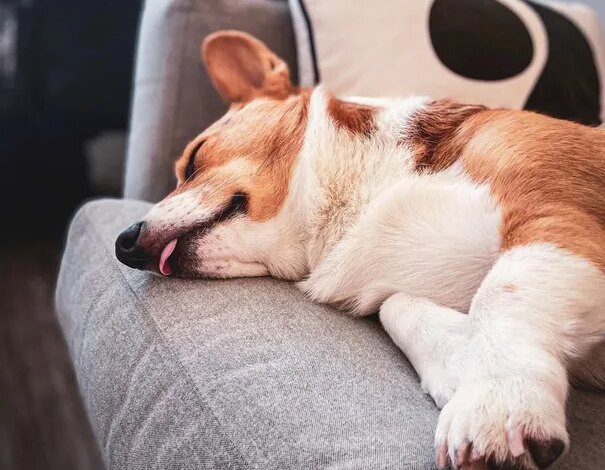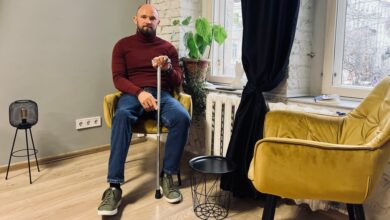Are naps good for brain health? Within the science of sleep

Almost everyone in Alison Brooks’ family, circle of friends, and even most of her neighbors knows all about her love of a good siesta.
“I call myself the ‘Alpha Napper,'” says Brooks, a Toronto-based IT analyst. “Because I’m one of those people who can take a nap anywhere, in a car, on a plane, anywhere. I could practically take a nap standing up.”
She doesn’t sleep every day. Her sleep tracker counted about 120 naps last year, so about every third day. It’s especially important, says this early riser, on days when she didn’t get enough sleep the night before.
“If I haven’t slept well, I can’t concentrate,” Brooks explains. “But if I take a 20 or 30 minute nap, I can pull myself up and start again. It’s like a power reset in the middle of the day, so why not?”
Members of Team Nap (myself included) would probably agree, especially after last week’s news that University College London researchers found a link between daytime naps and greater total brain volume.
Unfortunately, there are plenty of people in the anti-sleeper camp who have long and detailed answers to the question “why not?” Despite the fact that many of us have heard that naps are good for us, there is one more research group that has discovered a link between naps and things like depression, high blood pressure and the risk of stroke.
“Napping is a bit controversial,” explains Dr. Kristine Yaffe, a professor of psychiatry, neurology, and epidemiology at the University of California, San Francisco, and an advisor to the Weston Brain Institute. “It seems that short naps or naps in the context of a bad night’s sleep can be a good thing that helps the body repair itself.”
But as with so much health news, the jury is still out and there’s probably no general nap advice as it seems like it depends on age, nap length and whether you got a full night’s sleep the night before.
Why is there so much ambiguity? One complication is that some people seem to be genetically predisposed to napping, which could explain why the world is divided into nappers and non-nappers, the latter of which either can’t fall asleep or wake up feeling worse than before.
The other problem is that, while sleep research is not new, reliable data used to be hard to come by. Humans are not very good at self-reporting sleep. Did you really toss and turn all night? Or was it just 15 frustrating minutes that felt endless?
“The reality is we still have a lot to learn about the link between sleep and brain health,” said Cristina Tang, neuroscience program director for the Weston Family Foundation. “That is why the Weston Family Foundation is currently funding this important research. Much of what we knew about sleep came from observing people in a sleep lab, but now, with the availability of tools and devices that allow people to track their sleep, many opportunities have opened up for researchers to study sleep in a more natural way. to study. environment.”
And it seems that this technological innovation could not have come at a better time. The science of sleep is having a moment, as the public increasingly turns to new research and a multi-billion dollar sleep industry ahead answers about improving ‘sleep performance’.
“I think we’re a relatively sleep deprived society, right?” commented Dr. Mark Boulos, neurologist at Sunnybrook Health Sciences Center. “In general, a lot is asked of everyone. Just keeping a job is hard and can be exhausting let alone all the other issues you have.”
For that reason, Boulos suggests that most of us can probably feel safe taking short naps here and there (less than an hour), especially if you’ve had less than six hours the night before.
Still, like Yaffee, he cautions those of us on Team Nap to be careful not to go too far. Stick to the disco naps, kids, because long naps — more than an hour — can make some people dizzy. Long naps are also associated with cardiovascular events. And it can also mess with your ability to sleep at night.
“Naps can take away your sleep drive in general and prevent you from falling asleep before bed,” advised Boulos. “The research shows time and time again that it is better to aim for at least six hours of sleep per night. Anything less than six hours of sleep is bad for your health and is associated with heart attacks, strokes, dementia and other bad outcomes.”
Boulos added that some people need seven hours; others may be better off with eight or even nine hours. However, more than nine hours is a problem. Too much sleep is associated with the same conditions associated with sleep deprivation.
While we don’t yet have a definitive answer to naps, researchers say the recent research linking naps and brain health is very interesting because it’s likely another important piece of the puzzle.
“For me, the most important thing that this research tells us again is that there is a very interesting and robust link between sleep health and brain health,” Yaffe said.
While we don’t yet know all the details about the where, when, and why, it’s pretty clear that sleep is considered a “pillar of brain health.” The reason for this is likely that while we sleep, our lymphatic systems are busy clearing out harmful waste proteins, particularly beta-amyloid and tau, both of which are believed to play a role in Alzheimer’s disease.
“What the past decade has really shown us is that sleep is a time when the brain is relatively quiet, allowing for a lot of homework to be done,” she added. “For a long time we never understood why we spend a third of our lives sleeping, but we’re starting to get it now.”

:format(webp)/https://www.thestar.com/content/dam/thestar/life/2023/06/29/are-you-on-team-nap-why-new-research-shows-you-should-consider-a-midday-snooze/napping_health_sleep.jpg)




